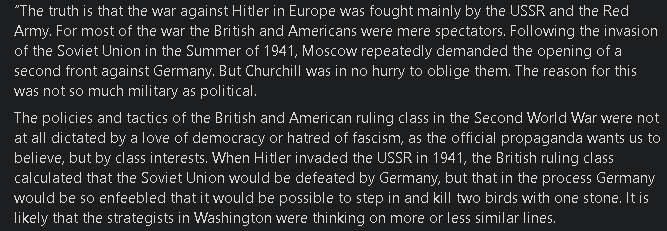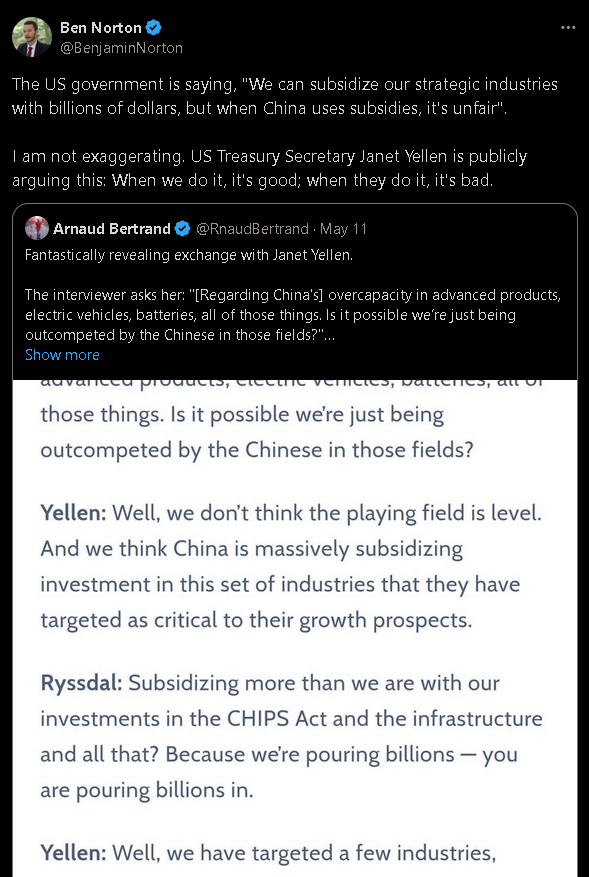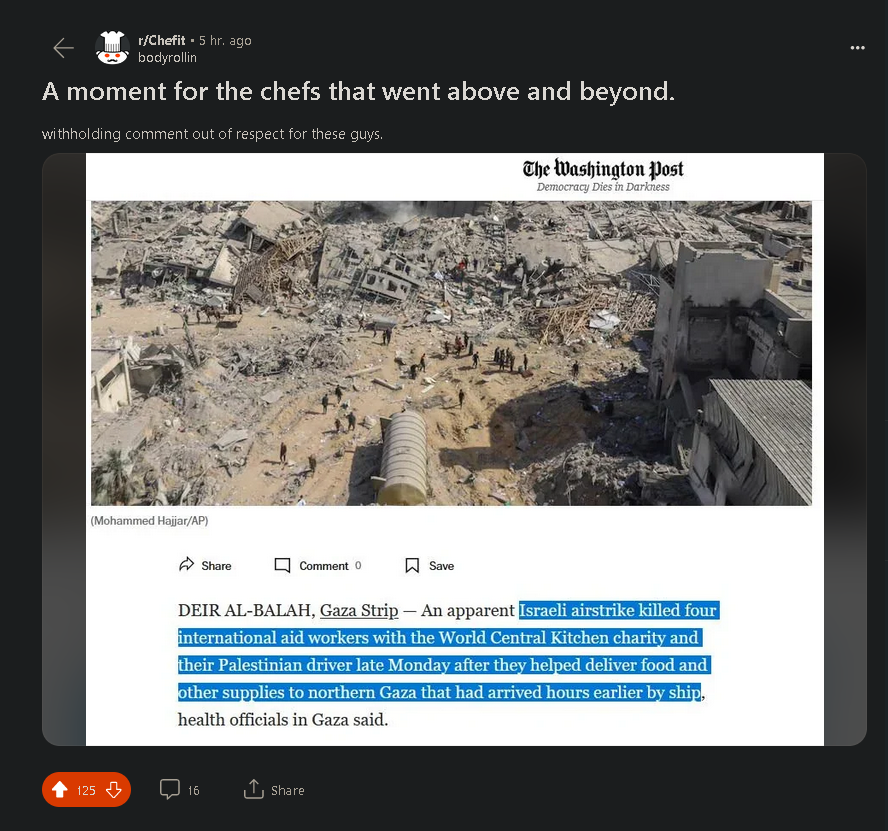I love John Pilger. All my homies love John Pilger. This rules. 
ty saved me a click 
Good ole' first past the post. The Bloc can get half as many votes but twice as many seats because they have regional (rather than diffuse, national) support 
The NDP doesn't have enough national support for the media to feel compelled to attack them as viciously as the yanks did to Bernie, but if it came to that they certainly would.
Can somebody give me a TL;DW
I don't mean to be the  guy but that would pretty much guarantee a Conservative majority at this point if an election were called.
guy but that would pretty much guarantee a Conservative majority at this point if an election were called.
Pretty amazing that the NDP haven't been able to pick up one single percentage point of national support during this whole time. They've hovered at 16-18% basically forever, with the singular exception of the 2011 election.
90% of the F series trucks I've seen have only ever hauled groceries.
BTW here is the article (found it in view-source):
spoiler
The West's tightening sanctions are driving Russia nearly up against the wall — but Moscow keeps finding ways to keep the country's economy going.Russia's trade partners, too, are looking for ways to continue doing business with the country via alternative systems to rival the Western-led, US dollar-dominated global financial order.Discussions about de-dollarization have been gaining traction in recent years as Western-led sanctions against Russia related to its invasion of Ukraine are making other countries wary of the potential consequences of crossing Washington.There's been some success, with trade between Russia and China, as well as Russia and India, chugging along until recently. Now, even Chinese banks — buckling under the pressure of tightening US sanctions — are pushing back on processing transactions for Russian companies.But Russia and its partners have been looking at other ways to do business outside the Western-led order, in part because technology is making it easier to process payments and get around the US-dollar-dominated global financial order.As Brookings researchers Sam Boocker and David Wessel explained in an August post, "innovations in payment technology could reduce the dollar's role in the global economy."To be sure, king dollar is entrenched in the world's financial system, so it's unlikely to be dethroned, most experts say. However, new platforms are coming up that could chip away at its dominance.These are some of the alternative trading and payment systems that are trying to crack the US-led trade and payments order:Russia prepared for even more sanctions years ago, following trade restrictions after it annexed Crimea in 2014."There are risks in using the global financial networks," Elvira Nabiullina, governor of Russia's central bank, told CNBC in 2018. "Therefore, since back in 2014, we have been developing our own systems."Some Russian banks were banned from the SWIFT messaging system for banking transactions following Russia's full-scale invasion of Ukraine. Moscow has been touting its homegrown ruble-based payment system — the System for Transfer of Financial Messages, or SPFS — that was set up in 2014.At the end of 2023, users of SPFS included 556 organizations from 20 countries. Of these, 159 — about a quarter of total participants — were foreign and their use of the messaging system more than doubled from 2022, according to Russia's central bank, per Interfax.In July, Russia and Iran — another heavily-sanctioned country — finalized details to connect the banking systems of the two countries, Iran's Mehr news agency reported.This means that Russia's Mir payment system would work with Iran's Shetab banking system, allowing for both pariah states to trade more smoothly.China's Cross-Border Interbank Payment System, or CIPS, is an alternative system that processes payments in Chinese yuan.Launched in 2015, CIPS has about 2,000 participants as of July, compared to 11,000 for SWIFT.CIPS "has been growing rapidly in recent years," the Brookings researchers wrote.In 2023, CIPS processed over 6.6 million transactions, totaling 123 trillion Chinese yuan, or $17.3 trillion — up nearly 30% by value from a year ago, according to China's central bank.India — now a key trading part of Russia — also has its own system.The country's Unified Payments Interface, or UPI, was developed in 2016 and is used extensively in India today, even among everyday consumers.The payment system has gotten so big that it's not just limited to India. The National Payments Corporation of India, which runs the platform, has partnered with financial institutions in other countries, including France, the United Arab Emirates, and Singapore.If the UPI's footprint expands to more countries, it could be a way to bypass the SWIFT banking system, wrote Evan Freidin, an international relations analyst, for the Lowy Institute, an Australian think tank."It is significant that UPI can also be used to bypass the SWIFT banking system, enabling payments with sanctioned countries such as Russia, thereby weakening US financial hegemony," Freidin wrote in July.Countries are also increasingly looking to build central bank digital currencies, or CBDCs. These currencies are similar to cryptocurrencies but are issued and backed by central banks.The Bank for International Settlements, an organization of central banks, is overseeing the trial of a CBDC platform for wholesale cross-border payment.Participants of the project, called mBridge, include China, Hong Kong, Thailand, the United Arab Emirates, and Saudi Arabia. It's dominated by Beijing, which has already rolled out the digital Chinese yuan.The Brookings researchers wrote that these CBDCs could "upend the dollar's role as a currency 'middleman' by reducing settlement times, making it cheaper and easier to trade non-dollar currencies."The CBDCs integrate messaging and payments, unlike current systems like SWIFT and major US dollar clearing system CHIPS.As doors to transact in fiat money close, Russia is now looking to trade in cryptocurrencies.It's in such a rush to get the system up and running that it plans to start crypto exchange trials as soon as September 1, anonymous sources told Bloomberg in late August.Creating this mode of payment has gotten more pressing because even banks from China are rejecting most transactions with Russian entities.Russian President Vladimir Putin himself said in July that Russia had to "seize the moment" to create a legal framework for digital assets, as they are being increasingly used to settle international payments.If all else fails, there's also the age-old method of barter trade.In August, Reuters reported that Russia and China are planning to revive the practice of barter trade to get around Western sanctions.The deals could involve agriculture and could come as soon as this fall, the news agency reported, citing anonymous trade and payments sources.The two countries are no strangers to barter.It was practiced during the Soviet era and in the years following the bloc's collapse. At the time, China was a key trading partner.In August 2022, the Taliban regime in Afghanistan also discussed barter trade with Russia that could involve trading Russian crude oil products in exchange for raisins, minerals, and medicinal herbs, according to RIA Novosti, a Russian state-owned news agency.Last year, cash-strapped Pakistan authorized the barter trade of specific goods with Russia.In 2019, China traded $150 million worth of palm oil from Malaysia for a range of products and services, including natural resources and defense equipment.
I dunno, there are some recent polls that put Trump way ahead:
https://projects.fivethirtyeight.com/polls/president-general/


 thread, there are some jaw-dropping comments (some just taken from the Samson Option Wiki page itself):
thread, there are some jaw-dropping comments (some just taken from the Samson Option Wiki page itself):


 , and the same to the countless thousands of Palestinians murdered in the last 6 months who just wanted to live a normal life.
, and the same to the countless thousands of Palestinians murdered in the last 6 months who just wanted to live a normal life.



Because of the implication